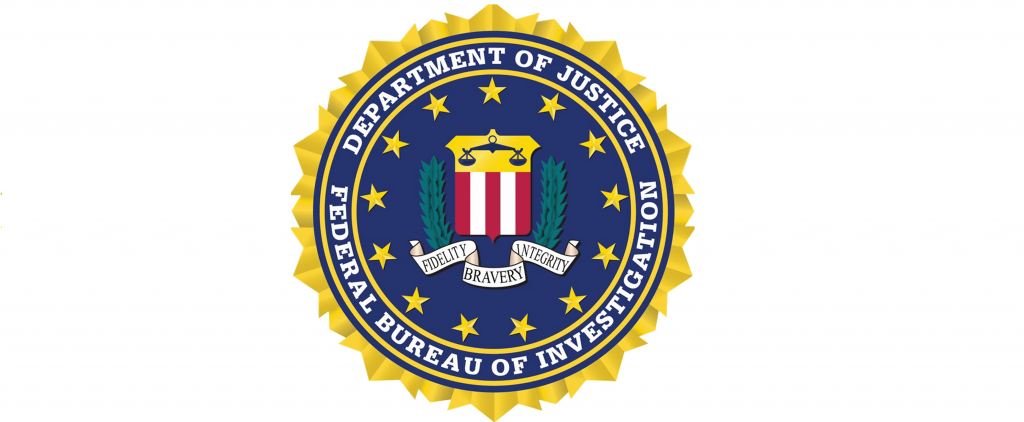Student-centric advice and objective recommendations
Higher education has never been more confusing or expensive. Our goal is to help you navigate the very big decisions related to higher ed with objective information and expert advice. Each piece of content on the site is original, based on extensive research, and reviewed by multiple editors, including a subject matter expert. This ensures that all of our content is up-to-date, useful, accurate, and thorough.
Our reviews and recommendations are based on extensive research, testing, and feedback. We may receive commission from links on our website, but that doesn’t affect our editors’ opinions. Our marketing partners don’t review, approve or endorse our editorial content. It’s accurate to the best of our knowledge when posted. You can find a complete list of our partners here.
How to Become an FBI Agent

 By
Zach Skillings
By
Zach Skillings 
Zach Skillings is the Scholarships360 Newsletter Editor. He specializes in college admissions and strives to answer important questions about higher education. When he’s not contributing to Scholarships360, Zach writes about travel, music, film, and culture. His work has been published in Our State Magazine, Ladygunn Magazine, The Nocturnal Times, and The Lexington Dispatch. Zach graduated from Elon University with a degree in Cinema and Television Arts.
Full BioLearn about our editorial policies

Cece Gilmore is a Content Writer at Scholarships360. Cece earned her undergraduate degree in Journalism and Mass Communications from Arizona State University. While at ASU, she was the education editor as well as a published staff reporter at Downtown Devil. Cece was also the co-host of her own radio show on Blaze Radio ASU.
Full BioLearn about our editorial policies

Maria Geiger is Director of Content at Scholarships360. She is a former online educational technology instructor and adjunct writing instructor. In addition to education reform, Maria’s interests include viewpoint diversity, blended/flipped learning, digital communication, and integrating media/web tools into the curriculum to better facilitate student engagement. Maria earned both a B.A. and an M.A. in English Literature from Monmouth University, an M. Ed. in Education from Monmouth University, and a Virtual Online Teaching Certificate (VOLT) from the University of Pennsylvania.
Full BioLearn about our editorial policies

A job as an FBI agent is a highly rewarding and prestigious career. Special Agents perform complex work to achieve a simple mission, which is to protect the American people and uphold the U.S. Constitution. They’re part of an elite team charged with the critical task of keeping their communities and the nation safe. Positions with the Federal Bureau of Investigation provide competitive pay, great health insurance coverage, and excellent retirement benefits. If you think you’re cut out for this type of career, keep reading to learn how to become an FBI Special Agent.
A career with the FBI can be as demanding as it is rewarding. Special Agents must be willing and ready to work anywhere in the world, commit to at least 50 hours of work per week, and maintain a high level of fitness.
Eligibility requirements for FBI agents
To be eligible for an FBI Special Agent position, you must meet the following minimum requirements:
- Be a U.S. citizen
- Be at least 23 years of age
- Pass a background check and a urinalysis
- Earned a bachelor’s degree from a U.S.-accredited college or university
- Have at least two years of full-time professional work experience (or one year if you have earned a master’s degree or higher)
- Possess a valid driver’s license
- Meet the physical fitness standards including vision, hearing and immunization requirements
Automatic disqualifiers
The following are automatic disqualifiers to become a FBI Special Agent:
- Non-U.S. citizenship
- Conviction of a felony
- Violation of the FBI Employment Drug Policy
- Default on a student loan insured by the U.S.. government
- Failure of an FBI-administered urinalysis drug test
- Failure to register with the Selective Service System
- Failure to pay court ordered child support
- Failure to file federal, state or local income tax returns
Application process
The Special Agent Selection System (SASS) identifies the most mentally and physically capable applicants. The application process is rigorous and lengthy, typically taking at least one year to complete. Here are the steps of the application process::
1. Application and Screening
The first step is to submit your application on the FBI’s website. Applicants are screened based on the eligibility requirements listed above. They’re then evaluated based on whether their skills are a good match for the FBI’s current needs. In order to secure a position, you may be required to have skills or experience related to investigation, law enforcement, computer science, physical and biological sciences, language, intelligence gathering, finance, or accounting. The amount of time it takes to complete the initial screening process varies greatly.
2. Phase I Test
If you pass the initial screening, you’ll receive an invite to take the Phase I computerized test. This is a three-hour exam at a local FBI facility. The test consists of five sections: Logic-Based Reasoning, Figural Reasoning, Personality Assessment, Preferences and Interests, and Situational Judgment. Essentially, the Phase I test is designed to evaluate basic abilities, knowledge, and competency. Candidates receive a pass/fail notification within one hour of taking the test.
3. Required Information
Upon receiving a passing score on the Phase I test, candidates receive an email prompting them to complete the Required Information section of their application. This includes the Special Agent Physical Fitness Test (SA PFT) self-evaluation, Critical Skills, and Self-Reported Language sections. Candidates must submit this information before moving on in the application process.
4. Meet and Greet / Review Process
Next, applicants will attend a meet and greet session conducted by their Processing Field Office (PFO). Your application will be reviewed in person and the information you submitted will be verified. You’ll then be evaluated for suitability to move on to Phase II. The average timeframe for a candidate to move from Phase I to Phase II is 23 weeks.
5. Phase II Test
The Phase II test involves a writing assignment and in-depth interview conducted by a panel of three Special Agents. Candidates receive a pass/fail notification within about two weeks of completing the test.
6. Official Physical Fitness Test (PFT)
After Phase II, candidates must pass a Physical Fitness Test (PFT). Trained FBI personnel conduct the test, held at the applicant’s local Field Office. The PFT consists of sit-ups, push-ups, a 300-meter sprint, a 1.5-mile run, and sometimes pull-ups. Applicants are offered three opportunities to pass the official PFT within one year after passing Phase II.
7. Conditional Appointment Offer (CAO)
Upon passing both Phase II and the PFT, candidates receive a Conditional Appointment Offer (CAO). Hiring is contingent upon the successful completion of a background check, polygraph test, medical examination, and other components. Candidates will receive their CAO shortly after passing their PFT and will have five days to accept or reject the offer.
8. Background Investigation and Medical Check
The next step is an intensive background investigation. This typically includes a polygraph exam, credit and arrest check, drug test, fingerprinting, and interviews with neighbors, friends, coworkers, and previous employers. Candidates must also undergo medical testing to ensure they don’t have any underlying health issues. The medical screening includes checks for high blood pressure, as well as vision and hearing tests. The average background investigation takes six months, but can last as long as 18 months depending on the candidate.
9. Basic Field Training Course (BFTC)
If you make it past all these steps, you’ll be invited to a Basic Field Training
Course (BFTC) at the FBI Academy in Quantico, Virginia. During this 19-week program, New Agent Trainees (NATs) live on campus and learn firearms proficiency, defensive tactics, and other special skills. Trainees are paid for their time at the FBI Academy, but they must successfully complete the course in order to be hired as FBI Special Agents.
10. Placement
If you’ve made it this far, congratulations! Candidates who complete the BFTC can officially join the FBI as Special Agents.
What benefits do FBI Agents receive?
FBI Special Agents receive many benefits including the following:
- 13-26 days of annual leave
- 11 days of federal holidays
- 13 sick leave days
- 15 military leave days
- 12 weeks of parental leave
- 401 K with up to 5% employer match
- Heath and life insurance
- Pension plan
- Ability to retire after 20 years
- Opportunity to apply for student loan repayment, tuition reimbursement, and sabbatical program
- Opportunity to attend specialized training programs and obtain certifications
Other career paths
Special Agents aren’t the only people that work for the FBI. In fact, there’s a variety of career paths available at the FBI. If you’re not sure that a Special Agent role is right for you, consider the following positions:
Intelligence Analyst
When it comes to national security, intelligence analysts are part of the first line of defense. They analyze information and make recommendations to decision-makers to help identify and mitigate threats.
Surveillance Professional
Surveillance professionals discreetly gather information supporting counterterrorism, foreign counterintelligence, and criminal investigations. They may work in an ordinary office setting or in the field, gathering intelligence via foot, vehicle, or public transportation.
Forensic Accountant
Forensic accountants investigate complex financial crimes such as corporate fraud and various other types of fraud. They work closely with Special Agents to trace the funding sources of criminal activity.
Language Analyst
FBI linguists use their proficiency of foreign languages and cultures to protect the U.S. from both domestic and international threats. They work with a team to defend against counterintelligence threats, cases of corruption, espionage, cybercrime, and other unlawful offenses.
Specialized Career Paths
The FBI also employs specialized professionals in the following fields:
- STEM
- Arts and Communications
- Business and Human Resources
- Acquisitions and Logistics
- Legal
- Science and Medicine
- Police
Opportunities for students
While you can certainly apply for FBI positions directly, you may want to consider programs specifically meant for college students and recent graduates. The following programs help young people prepare for and transition into a career with the FBI.
Honors Internship Program
The FBI Honors Internship Program is a 10-week, paid internship for college undergraduate and graduate students. Interns work alongside FBI professionals at the Washington, D.C. headquarters or in Field Offices around the country. Open to a wide range of academic areas, the internship provides students the chance to explore career options within the FBI.
Collegiate Hiring Initiative
The FBI’s Collegiate Hiring Initiative recruits graduating seniors who have undergraduate, graduate, or doctorate degrees to begin their careers in a hands-on team environment. Graduates are given the opportunity to explore and transition into the many career paths the FBI has to offer.
Visiting Scientist Program
The Visiting Scientist Program gives applicants the chance to work within the FBI Laboratory, one of the largest crime labs in the world. The program is open to college students, postgraduates, and even faculty. Under the guidance of forensic scientists, participants engage in research regarding law enforcement and national security.
Final thoughts
Overall, a career as an FBI Agent includes an extensive application process that can span months or even years. Therefore, if you are considering a career as a Special Agent it is important that you are aware of the requirements and are aware of the various deadlines you will need to meet. Ultimately, a job as a Special Agent is an extremely rewarding career that comes with many benefits as a government employee. However, if the process seems too daunting for you, it is important to remember that the FBI is a large organization with various roles that can appeal to your specific interests.
Other resources
- What is a STEM degree (and why you should study one)
- Criminology major overview
- Law school scholarships
- Top criminal justice scholarships
- What is the average starting salary out of college?
Frequently asked questions about how to become an FBI agent
How are special agents assigned to offices?
What is the age requirement for applying?
How long does the FBI special agent job application process take?
Do I need to have prior experience with handling a gun before becoming a FBI special agent?
Are there different physical fitness requirements for women and men?


